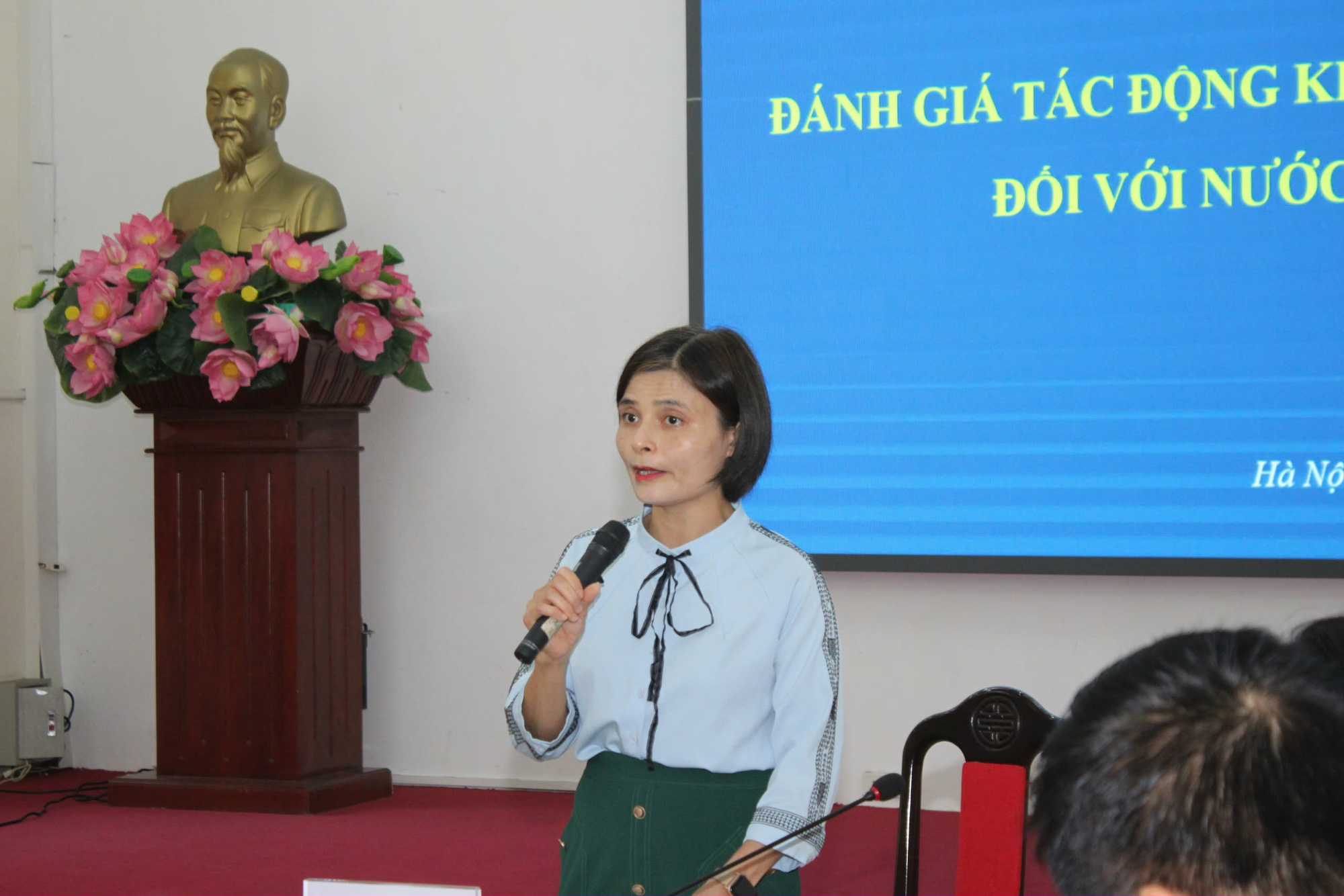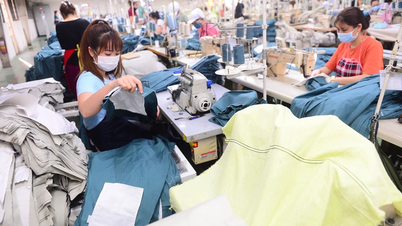
Ms. Nguyen Minh Thao - Head of the Business Environment and Competitiveness Department (CIEM) - Photo: N.KH.
On October 17, a workshop was held by the Central Institute for Economic Management (CIEM) to announce a report assessing the economic impact of the draft Law on Special Consumption Tax on Sugary Beverages.
Industry narrows production, economy affected?
According to Ms. Nguyen Minh Thao - Head of the CIEM Business Environment and Competitiveness Department, the draft Law on Special Consumption Tax was developed but did not fully assess the economic impacts.
Meanwhile, the draft stipulates that sugary soft drinks will be subject to a special consumption tax of 10%, on the grounds that this is an item that affects human health and contributes to overweight and obesity.
Through research and impact assessment indicated by CIEM, the tax will significantly shrink the scale of the beverage industry, with added value decreasing by VND5,650 billion and production value decreasing by VND5,524 billion.
Assessing the indirect impact on 24 sectors in the economy when imposing taxes, the production value will decrease by more than VND 55,500 billion and the added value will decrease by VND 51,077 billion. As a result, the GDP of the whole economy will decrease by 0.448%, equivalent to VND 42,570 billion.
The imposition of taxes helps increase budget revenue, especially in the first year. Including indirect taxes increasing by VND8,500 billion, but direct taxes (corporate income tax) decreased by VND2,152 billion. However, in the following cycles (from the second year of tax calculation), indirect taxes will decrease by 0.496%, equivalent to nearly VND5,000 billion.
For businesses, due to the reduction in production, asset depreciation decreased by 0.654%, equivalent to 7,767 billion VND; pre-tax profit decreased by 0.561%, equivalent to 8,773 billion VND. Employees in businesses decreased by 0.031%, equivalent to a loss of value of 1,994 billion VND and employees' income decreased by 0.60%, equivalent to more than 69,000 billion VND.
Scientific evidence is needed
According to Ms. Thao, special consumption tax on sugary soft drinks should not be imposed if the scientific impact has not been comprehensively assessed. If there is sufficient scientific evidence and has been verified on the impact of sugary soft drinks on overweight and obesity, it is necessary to use the international definition of sugary soft drinks; choose the appropriate special consumption tax option of 5%, which will not have a major impact on the economy.
Deputy Head of the People's Petition Committee Tran Thi Nhi Ha said that the tax should be aimed at regulating consumer behavior rather than increasing budget revenue. Therefore, there needs to be more solid scientific evidence on the impact of sugary soft drinks on overweight and obesity to serve as a basis for taxing.
"If taxes are increased, how will the revenue be used and how will consumer health be protected? We need more opinions from health authorities about whether the product has a negative impact on human health," Ms. Ha suggested.
According to the Deputy Head of the Petition Committee, the tax on sugary drinks is essentially to regulate the amount of sugar entering the body to a reasonable level, not to reduce overweight and obesity. Therefore, it is necessary to add an assessment of the impact on health, because this is a very important issue but the draft lacks a medical assessment.
Source: https://tuoitre.vn/ap-thue-tieu-thu-dac-biet-nuoc-giai-khat-co-duong-tranh-gay-hai-suc-khoe-nhung-thiet-kinh-te-20241017134706063.htm


![[Photo] Panorama of the Opening Ceremony of the 43rd Nhan Dan Newspaper National Table Tennis Championship](https://vphoto.vietnam.vn/thumb/1200x675/vietnam/resource/IMAGE/2025/5/19/5e22950340b941309280448198bcf1d9)
![[Photo] President Luong Cuong presents the 40-year Party membership badge to Chief of the Office of the President Le Khanh Hai](https://vphoto.vietnam.vn/thumb/1200x675/vietnam/resource/IMAGE/2025/5/19/a22bc55dd7bf4a2ab7e3958d32282c15)

![[Photo] Close-up of Tang Long Bridge, Thu Duc City after repairing rutting](https://vphoto.vietnam.vn/thumb/1200x675/vietnam/resource/IMAGE/2025/5/19/086736d9d11f43198f5bd8d78df9bd41)
![[Photo] General Secretary To Lam attends the conference to review 10 years of implementing Directive No. 05 of the Politburo and evaluate the results of implementing Regulation No. 09 of the Central Public Security Party Committee.](https://vphoto.vietnam.vn/thumb/1200x675/vietnam/resource/IMAGE/2025/5/19/2f44458c655a4403acd7929dbbfa5039)



























![[Photo] Prime Minister Pham Minh Chinh inspects the progress of the National Exhibition and Fair Center project](https://vphoto.vietnam.vn/thumb/1200x675/vietnam/resource/IMAGE/2025/5/19/35189ac8807140d897ad2b7d2583fbae)






















































![[VIDEO] - Enhancing the value of Quang Nam OCOP products through trade connections](https://vphoto.vietnam.vn/thumb/402x226/vietnam/resource/IMAGE/2025/5/17/5be5b5fff1f14914986fad159097a677)





Comment (0)